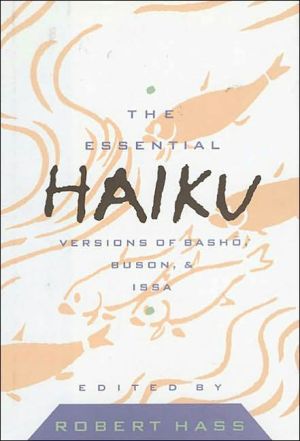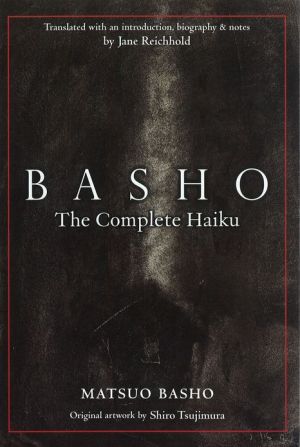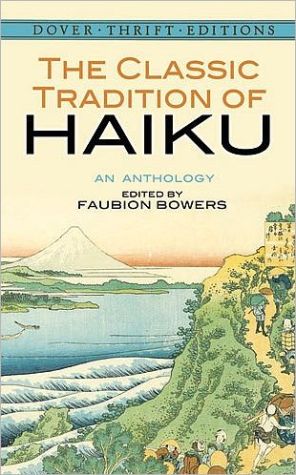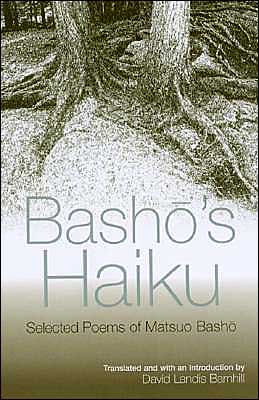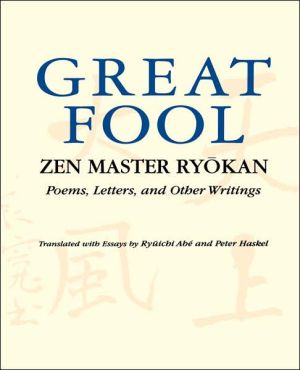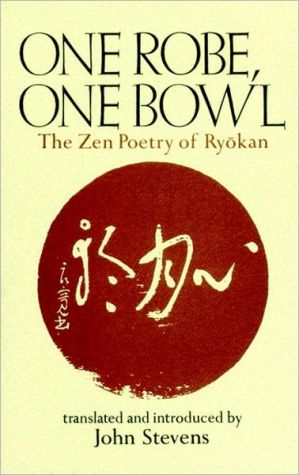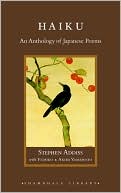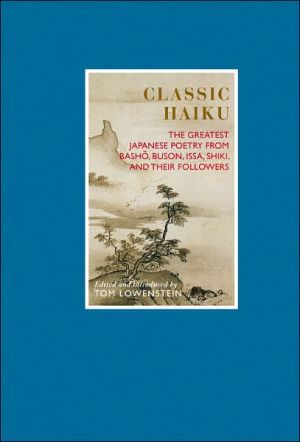Essential Haiku: Versions of Basho, Buson, and Issa, Vol. 20
American readers have been fascinated, since their exposure to Japanese culture late in the nineteenth century, with the brief Japanese poem called the hokku or haiku. The seventeen-syllable form is rooted in a Japanese tradition of close observation of nature, of making poetry from subtle suggestion. Infused by its great practitioners with the spirit of Zen Buddhism, the haiku has served as an example of the power of direct observation to the first generation of American modernist poets like...
Search in google:
American readers have been fascinated, since their exposure to Japanese culture late in the nineteenth century, with the brief Japanese poem called the hokku or haiku. The seventeen-syllable form is rooted in a Japanese tradition of close observation of nature, of making poetry from subtle suggestion. Infused by its great practitioners with the spirit of Zen Buddhism, the haiku has served as an example of the power of direct observation to the first generation of American modernist poets like Ezra Pound and William Carlos Williams and also as an example of spontaneity and Zen alertness to the new poets of the 1950's.This definite collection brings together in fresh translations by an American poet the essential poems of the three greatest masters: Matsuo Basho in the seventeenth century; Yosa Buson in the eighteenth century; and Kobayashi Issa in the early nineteenth century. Robert Haas has written a lively and informed introduction, provided brief examples by each poet of their work in the halibun, or poetic prose form, and included informal notes to the poems. This is a useful and inspiring addition to The Essential Poets series.Publishers WeeklyHass ( Human Wishes ) defers to the complex syntactical gaps that separate the Japanese and English languages, calling his translations ``versions.'' Here he presents three masters of the haiku form: Basho (1644-1694), the haiku poet most familiar to English readers; Buson (1716-1783), a visually oriented writer renowned in his time as a painter; and Issa (1763-1827), whose work is most poignant when he utilizes his ironic wit. Hass's obsessions, as evidenced by his other work, can be fitted under two rubrics, grief and pleasure, and he chooses a fair number of haiku to represent these poles. Yet the poems that merely observe nature's cyphers are most absorbing. Hass's signature is apparent in the mixture of sensual and temporal imagery: ``The jars of octopus-- / brief dreams / under the summer moon'' (Basho). Buson's images settle in the mind for days with their lush, unexpected vistas: ``A field of mustard, / no whale in sight, / the sea darkening.'' Yet, surprisingly, it is Issa's haiku which may appeal most to Western readers. His benignly sardonic grasp of experience resonates with our late 20th-century cynicism: ``New Year's Day-- / everything is in blossom! / I feel about average.'' Or: ``I'm going out, / flies, so relax, / make love.'' Hass also includes samplings of each poet's prose, giving a deeper notion of their individual world views and aesthetics. Richly annotated, with illuminating essays on the poets and Japanese poetics, this anthology significantly broadens the pleasure of haiku for anyone unable to read them in the original. (June)
\ Even in Kyoto--\ hearing the cuckoo's cry--\ I long for Kyoto.\ \ This road--\ no one goes down it,\ autumn evening.\ \ The whitebait\ opens its black eye\ in the net of the law.\
IntroductionIBasho1Matsuo Basho3"The Hut of the Phantom Dwelling"55The Saga Diary59IIBuson71Yosa Buson73Long Poems127From New Flower Picking137IIIIssa143Kobayashi Issa145From Journal of My Father's Last Days197From A Year of My Life217IVBasho on Poetry231Learn from the Pine233From Kyorai's Conversations with Basho239Notes251A Note on Haikai, Hokku, and Haiku299A Note on Translation309Further Reading319Acknowledgments325Copyright Acknowledgments327About the Editor331
\ Publishers Weekly\ - Publisher's Weekly\ Hass ( Human Wishes ) defers to the complex syntactical gaps that separate the Japanese and English languages, calling his translations ``versions.'' Here he presents three masters of the haiku form: Basho (1644-1694), the haiku poet most familiar to English readers; Buson (1716-1783), a visually oriented writer renowned in his time as a painter; and Issa (1763-1827), whose work is most poignant when he utilizes his ironic wit. Hass's obsessions, as evidenced by his other work, can be fitted under two rubrics, grief and pleasure, and he chooses a fair number of haiku to represent these poles. Yet the poems that merely observe nature's cyphers are most absorbing. Hass's signature is apparent in the mixture of sensual and temporal imagery: ``The jars of octopus-- / brief dreams / under the summer moon'' (Basho). Buson's images settle in the mind for days with their lush, unexpected vistas: ``A field of mustard, / no whale in sight, / the sea darkening.'' Yet, surprisingly, it is Issa's haiku which may appeal most to Western readers. His benignly sardonic grasp of experience resonates with our late 20th-century cynicism: ``New Year's Day-- / everything is in blossom! / I feel about average.'' Or: ``I'm going out, / flies, so relax, / make love.'' Hass also includes samplings of each poet's prose, giving a deeper notion of their individual world views and aesthetics. Richly annotated, with illuminating essays on the poets and Japanese poetics, this anthology significantly broadens the pleasure of haiku for anyone unable to read them in the original. (June)\ \ \ \ \ Library JournalMany versions of these simple poems exist in English, yet translators, who are often poets themselves, are led back to them time and time again by the urge somehow to get closer to the mark. This distinguished collection gathers together the three most highly regarded practitioners of haiku from different periods in Japanese history. The translations are presented in a fresh setting that offers a great deal of valuable background on the haiku form, the verse conventions from which it grew, and the difficulties inherent in translating from the Japanese. Examples from the prose works of each poet are included as well. The haiku stand on their own quite nicely in these strong versions, but the accompanying material and comparative context make this an attractive and valuable collection. Highly recommended.-Mark Woodhouse, Elmira Coll. Lib., N.Y.\ \ \ BooknewsA collection of the three greatest masters of haiku--Basho (17th century), Buson (18th century), and Issa (19th century)--chosen, translated, and introduced by the distinguished American poet Robert Haas. Published by The Ecco Press, 100 West Broad St., Hopewell, NJ 08525. Annotation c. Book News, Inc., Portland, OR (booknews.com)\ \ \ \ \ Ray OlsonRather than eclectically sampling the entire 400-year haiku tradition, editor Hass offers some 300 poems by its defining masters--Basho (1644-94), Buson (1716-83), and Issa (1763-1827). Introductorily, he discusses the Buddhist characteristics of the classic haiku and the context--that of Japan emerging from feudalism into mercantilism--in which it developed. He prefaces each master's poems with a sketch of his life, follows them up with excerpts from his prose, and he appends to all explanatory notes so informative that you want to keep a finger in the back of the book to enable quick reference. Also appended are long notes on "Haikai, Hokku, and Haiku" and on translating haiku into English, each so illuminating that reading them before reading the poems is a capital idea. Definitely more for serious literary readers than those who think of haiku as a higher sort of greeting card verse, the book is yet so full of poetry-reading delights that it may make serious students of mere haiku poetasters. Particularly striking in these versions is Issa, whose humanism (Hass calls it; others will call it earthiness--and only to praise it) is vital and engaging.\ \
